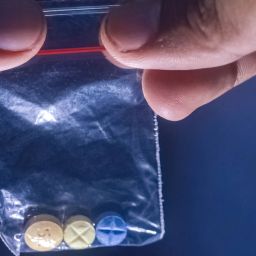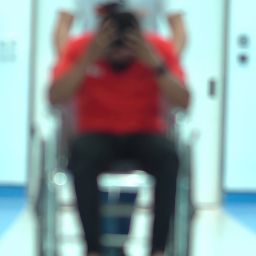Drug abuse is a widespread issue that affects millions of people around the world. Beyond the visible health impacts, there are profound and lasting consequences on mental faculties such as memory, learning, and cognition. In this article, we will explore the effects of drug abuse on these crucial brain functions, while also addressing the broader challenges of substance use disorder and discussing addiction treatment options in Baltimore.
What is Drug Abuse?
Drug abuse refers to the misuse of legal or illegal substances in ways that harm the body, mind, and social life. When someone consumes drugs in excess or uses them for non-medical reasons, they expose themselves to a range of health risks, including impairments in brain function. This not only affects day-to-day activities but can also lead to long-term mental health issues.
Substance use disorder (SUD) is a medical condition where an individual becomes dependent on drugs, often leading to a loss of control over their consumption. Over time, SUD can disrupt various cognitive processes, severely impacting an individual’s ability to function in everyday life. In places like Baltimore rehab centers, there are growing efforts to address these issues and help those affected by SUD regain control over their lives.
How Drug Abuse Affects the Brain
The effects of drug abuse on the brain are multi-faceted, affecting how neurons send, receive, and process signals through neurotransmitters. While different substances have varying effects, they often lead to similar outcomes: memory deficits, reduced cognitive performance, and impaired learning abilities.
Memory Impairment:
One of the most significant effects of drug abuse is the degradation of memory. Substances like alcohol, marijuana, and opioids can hinder our ability to remember things we’ve recently learned or experienced. Long-term abuse can even lead to permanent memory loss.
Learning Difficulties:
Substance abuse often hinders the brain’s ability to process new information. This can make learning new skills or retaining information challenging, which is why addiction treatment options in Baltimore focus not only on detoxification but also on cognitive rehabilitation.
Cognitive Decline:
Drug abuse accelerates cognitive decline, particularly in areas like decision-making, problem-solving, and critical thinking. These effects can be life-altering, limiting an individual’s capacity for independent living.
The Effects of Drug Abuse on Memory
Memory is a critical function of the brain that allows us to store, retrieve, and use information. When drugs are introduced into the system, they disrupt these processes, often leading to profound memory issues.
Short-term Memory Loss
Short-term memory, which helps us recall information for a limited period, is particularly vulnerable to the effects of drug abuse. Substances like alcohol and cannabis can alter the hippocampus, the brain region responsible for forming new memories. As a result, individuals may struggle to recall recent events, facts, or conversations. Baltimore rehab centers have seen cases where individuals lose memory of entire days due to substance use, showcasing the drastic effects drugs can have on mental functions.
Long-term Memory Damage
Chronic drug abuse has long-lasting effects on memory. Long-term memory damage is most common with drugs like alcohol, benzodiazepines, and opioids, which over time can lead to blackouts, memory gaps, and difficulty retrieving old memories. Individuals experiencing severe memory issues due to drug abuse often seek help through addiction treatment options in Baltimore, where comprehensive care is provided.
Learning and Drug Abuse
The ability to learn is one of the most crucial aspects of human cognition. However, when an individual becomes entrenched in substance use disorder, this ability is severely compromised.
Impaired Concentration
Drug abuse often affects concentration levels, which is a foundational aspect of learning. When focus is diminished, the ability to absorb and retain new information becomes severely compromised. This is a critical issue, especially in professional or academic settings, where the capacity to learn is directly tied to success. In some Baltimore rehab centers, patients are provided with therapies to improve concentration, helping them recover lost learning capabilities.
Slower Information Processing
Stimulant drugs such as cocaine and methamphetamine may initially increase alertness or energy, but chronic use eventually leads to slower cognitive processing. Over time, individuals find it difficult to absorb new information, follow instructions, or complete complex tasks. This is why addiction treatment options in Baltimore focus on rebuilding cognitive skills that may have been lost during prolonged substance use.
How Drugs Impact Your Thinking and Learning
Cognitive function includes various mental processes, such as attention, memory, decision-making, problem-solving, and reasoning. Drug abuse affects all of these areas, leading to a decrease in overall cognitive ability.
Diminished Decision-Making Abilities
One of the most concerning effects of drug abuse is the degradation of decision-making skills. Chronic users often find it difficult to make rational, informed choices. This can lead to dangerous behaviors, such as driving under the influence or engaging in risky sexual activity, further complicating their lives. At Baltimore rehab centers, there is a strong focus on teaching patients to rebuild decision-making and critical thinking skills through cognitive behavioral therapy.
Problem-Solving Challenges
Problem-solving is another essential cognitive skill that is impaired due to drug abuse. When the brain’s capacity for logical reasoning and critical thinking is compromised, individuals find it harder to assess situations and come up with solutions. Drugs such as hallucinogens and stimulants further distort perception, making it challenging to process information accurately.
The Effects of Specific Drugs on Memory, Learning, and Cognition
Different drugs have distinct impacts on memory, learning, and cognitive function. Some substances cause more damage than others, but all forms of drug abuse are harmful to the brain.
Alcohol
Alcohol is a substance that slows down the brain and nervous system. Heavy drinking disrupts memory by impairing the hippocampus, leading to both short-term blackouts and long-term memory gaps. Chronic alcohol abuse decreases cognitive function, which is why addiction treatment options in Baltimore often include cognitive rehabilitation for alcohol-dependent patients.
Marijuana
Marijuana is often considered less harmful than other substances, but its impact on the brain is significant, particularly with chronic use. THC, the active compound in cannabis, affects memory formation and retrieval, making it difficult for users to retain new information. This can have a devastating impact on learning and cognitive function, leading to difficulties in school, work, and personal relationships.
Opioids
Opioids, including prescription painkillers and illegal substances like heroin, interfere with neurotransmitter activity. Long-term opioid use leads to memory loss, difficulty concentrating, and impaired problem-solving abilities. In response, Baltimore rehab centers have developed specialized programs to help opioid users regain cognitive skills lost due to prolonged substance use.
Cocaine and Methamphetamine
Cocaine and methamphetamine are stimulants that cause significant cognitive impairment with chronic use. Initially, these substances may increase focus, but prolonged use leads to cognitive decline. Memory issues, decreased attention span, and impaired reasoning are common among long-term users.
Substance Use Disorder and Cognitive Decline
The long-term impact of substance use disorder on cognition is severe. Individuals with SUD face progressive cognitive decline as their drug use continues. They may struggle with:
- Reduced attention span
- Inability to plan and organize tasks
- Poor judgment and risk assessment
- Slower reaction times and decision-making
Many addiction treatment options in Baltimore focus on reversing these cognitive impairments, offering therapies designed to restore attention and critical thinking.
Neuroplasticity and Recovery
Despite the damage caused by drug abuse, the brain has an incredible ability to heal. Neuroplasticity allows the brain to form new neural connections, even after damage. Through sustained abstinence and appropriate rehabilitation, individuals can regain cognitive function. Many Baltimore rehab centers offer programs that focus on cognitive exercises, helping individuals restore brain function that was damaged by drug use.
Preventing the Cognitive Effects of Drug Abuse
Understanding the effects of drug abuse on memory, learning, and cognition is crucial for prevention. Key strategies to prevent cognitive decline due to drug abuse include:
Education:
Raising awareness about the risks of drug abuse can help prevent cognitive impairment, especially among younger populations.
Support Systems:
Encouraging individuals to seek support can reduce the likelihood of substance abuse and its devastating effects on the brain.
Early Treatment:
Early intervention is critical for preventing long-term cognitive damage. With timely help, such as the services offered at Baltimore rehab centers, many individuals can avoid further cognitive decline.
Seeking Professional Help?
If you or someone you know is struggling with drug abuse, we are here to help. Reach out to us for confidential support and guidance. Our experienced team can provide the resources and treatment options needed for recovery, including referrals to trusted rehab centers. Don’t hesitate—take the first step toward a healthier future by contacting us today.
Conclusion
The consequences of drug abuse on memory, learning, and cognition are severe and can have lasting effects on an individual’s overall well-being. From short-term memory lapses to long-term cognitive decline, substance abuse takes a heavy toll on the brain. Substance use disorder can have a profound and devastating impact on individuals, leading to serious health problems, financial difficulties, and social isolation.
Fortunately, with the right support and the use of addiction treatment options in Baltimore, individuals can work toward recovery. Baltimore rehab centers offer a range of programs designed to help individuals regain cognitive function and lead healthier, more fulfilling lives. Early intervention, education, and strong support systems are vital in preventing the damaging effects of drug abuse on the brain.
















